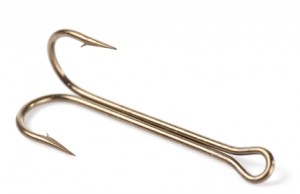 When you suffer from alcohol or drug problems and a mental health disorder, think in terms of simultaneous recovery. It’s important not to focus on one and exclude the other. We divide recovery into ten steps.
When you suffer from alcohol or drug problems and a mental health disorder, think in terms of simultaneous recovery. It’s important not to focus on one and exclude the other. We divide recovery into ten steps.
Here are the first three.
Step One: Stabilize symptoms
Stop drinking and drugging. This should be done with professional help and supervision. Why? Because it’s safer. And since there’s a good chance you’ll need some supportive medications, you need to a plan to make sure you take them as directed.
This last can be a challenge. Some alcoholics live by the motto that more pills means better results (that’s not true, by the way). Others can be quite phobic about meds of any kind. Both attitudes can present problems. Supervision and monitoring by a healthcare professional can make the difference between success and failure.
Step Two: Learn about your illness
Read all about it, and ask plenty of questions. Improve your grasp on your new knowledge by teaching someone else who knows less about it than you.
You may have a great deal of personal experience of addiction and mental illness, but how much do you really know about the disease and its treatment? I’m guessing this wasn’t covered in school. Approach the challenge as if you’d just been diagnosed with diabetes or hypertension. You’re a seeker of knowledge. Accurate, factual knowledge; that’s the only kind that can help.
Step Three: Self-diagnose
Go over a list of symptoms that you have experienced. Do they match the description of the symptoms of the disorders? In other words, do you believe the diagnosis you have been given is correct? If so, why? If not, why not? Are there areas where you disagree or have more questions?
This step is the real key to motivation. Someone who’s concluded that he or she has a disease is far more likely to treat it than somebody who is taking another person’s word for it (no matter how many degrees that other person may have.) Doubts or objections need to be voiced so they can hopefully be resolved. Ambivalence about recovery is normal and natural. But it also can directly reduce your motivation for change.
This shouldn’t be done in isolation. Share your thoughts with other knowledgeable people who can provide feedback. Try to have an open mind. Opinions set in stone are often the mark of a blockhead.
Those are the ‘foundation’ steps. The next ones address some practical aspects of daily living with co-occurring disorders.
Recovery With Co-Occurring Disorders Plan -More from this series:
- A Simple Plan: Recovery With Co-Occurring Disorders
- Recovery With Co-Occurring Disorders: The First Three Steps
- Recovery With Co-Occurring Disorders: Steps 4, 5 and 6
- Recovery With Co-Occurring Disorders: Step Seven
- Recovery With Co-Occurring Disorders: Steps 8 & 9
- Recovery With Co-Occurring Disorders: Step Ten









